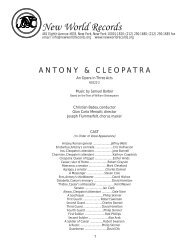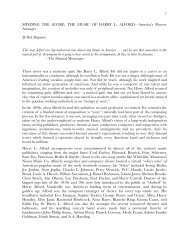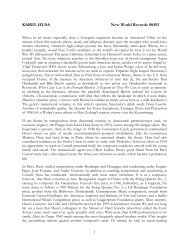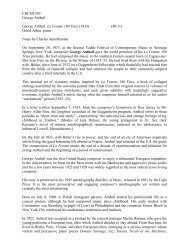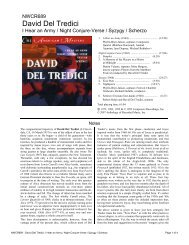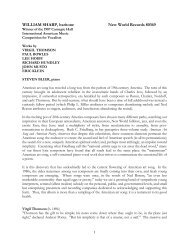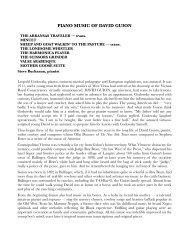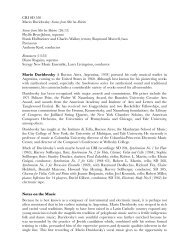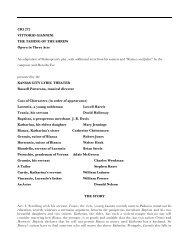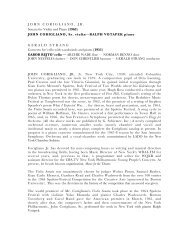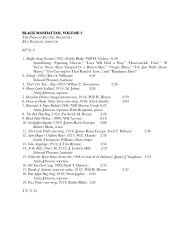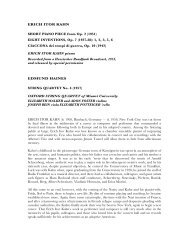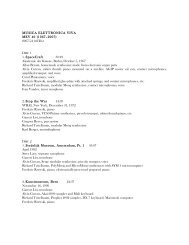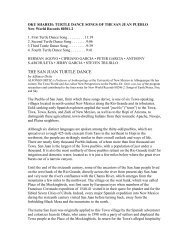Brother, Can You Spare a Dime? - New World Records
Brother, Can You Spare a Dime? - New World Records
Brother, Can You Spare a Dime? - New World Records
Create successful ePaper yourself
Turn your PDF publications into a flip-book with our unique Google optimized e-Paper software.
All In Down and Out Blues<br />
(David Harrison Macon)<br />
Uncle Dave Macon. Recorded August 3, 1937, in Charlotte, North Carolina. Originally<br />
issued on Bluebird 7350-B.<br />
“All In Down and Out Blues” is a typical response from the world of hillbilly music to<br />
the Great Depression.<br />
Anglo-American folk music has a long tradition of speaking directly to the facts of life,<br />
whether pleasant or unhappy. There is in much of this music a stoic acceptance of reality,<br />
with little trace of anger and often with some of the special brand of humor so<br />
characteristic of the people who sang and listened to this music. The present song, for<br />
example, begins: “It is hippity hop to the bucket shop,/I lost all my money and now I<br />
have flopped.”<br />
David Harrison Macon was born in rural Tennessee in 1870. He did not become a<br />
professional singer until he was almost fifty, although he had an early acquaintance with<br />
show business: when he was three, his family moved to Nashville to run a boardinghouse<br />
that became a popular stop for performers on the vaudeville circuit. He learned to play<br />
the five-string banjo and developed a unique singing style at an early age. But it did not<br />
occur to him to think of becoming a performer. Instead, he established and operated the<br />
Macon Midway Mule and Wagon Transportation Company in a small Tennessee town. In<br />
his own words,<br />
All my life I had played and sung for fun. My neighbors always asked me to play at<br />
picnics and special occasions. Finally one very self-important farmer approached me<br />
and asked me to play at a party he was planning. I was very busy and a bit tired, so I<br />
thought I would stop him. I told him I would play at his party for fifteen dollars. He<br />
said, “Okay, it’s a deal.”<br />
Two important things happened that day: Uncle Dave discovered that performing for a<br />
large audience was exciting; and—this being America—in the audience just happened to<br />
be a talent scout from Loew’s Theatres who on the spot signed him to appear in a<br />
Birmingham theater for several hundred dollars a week.<br />
After establishing himself as a singer and comedian on the vaudeville circuit, Macon<br />
began recording for Vocalion, Brunswick, Okeh, and Bluebird. He was one of the<br />
brightest stars at Nashville’s Grand Ole Opry from 1926 to his death in 1952. He was a<br />
master entertainer, combining his talents as a singer and one of the greatest banjo players<br />
of all time with his gift for comedy; jokes and humorous anecdotes were always part of<br />
his act.<br />
Many of Macon’s hundred-odd records are comic songs, including “Cross-eyed Butcher<br />
and the Cackling Hen,” “Two-in-One Chewing Gum,” and “The Gal That Got Stuck on



